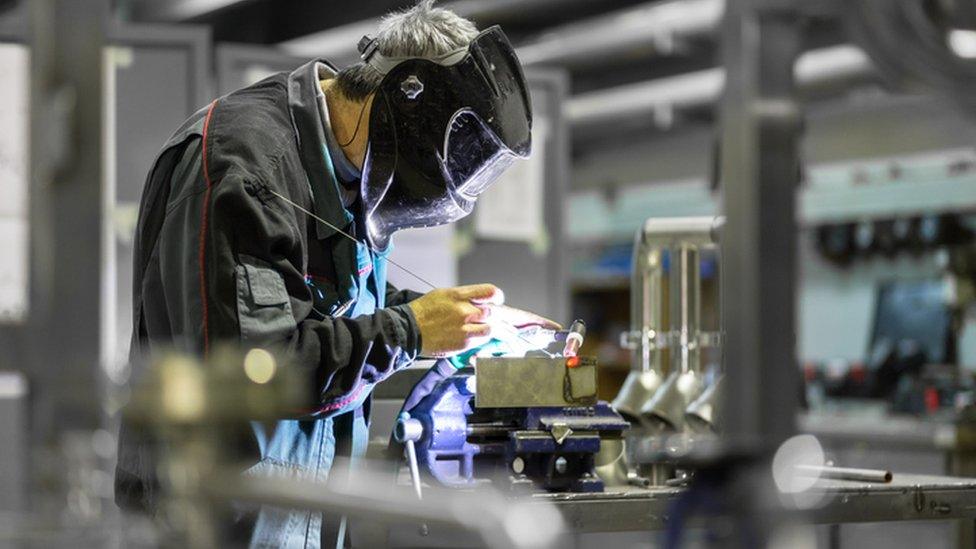PwC report finds AI could lead to net jobs gain by 2037
- Published
- comments

The report suggests automation will create more jobs than it displaces over the next 20 years
Artificial intelligence (AI) could create more jobs than it displaces in Scotland over the next 20 years, according to a report.
Research by professional services firm PwC suggested AI could create 558,000 Scottish posts by 2037.
Over the same period 544,000 jobs could be lost as a result of automation - resulting in a net increase of 14,000.
PwC said the new jobs could come from innovations such as drones, robotics and driverless vehicles.
It argued that AI would create employment as productivity and real incomes rise, and new and better products are developed.
PwC's latest Economic Outlook indicated that health, education and professional, scientific and technical services would benefit most, with manufacturing, transport and storage and public administration set to be the biggest losers.
Its report suggested that the affect of AI on the jobs market would be most positively felt in London, followed by south-east England. Scotland came third in the list of 12 nations and regions.

The report suggested manufacturing could be one of the big losers from the development of AI
Euan Cameron, UK artificial intelligence leader at PwC, said: "Our research highlights where the biggest impacts will be and which areas are most vulnerable, so that businesses and government can plan how best to help people develop the skills that will prepare them for the future.
"As our analysis shows, there will be winners and losers.
"It's likely that the fourth industrial revolution will favour those with strong digital skills, as well as capabilities like creativity and teamwork which machines find it harder to replicate."
In April an OECD report found fewer people's jobs were likely to be destroyed by artificial intelligence and robots than had been suggested by a much-cited study.
An influential 2013 forecast by Oxford University, external said that about 47% of jobs in the US in 2010 and 35% in the UK were at "high risk" of being automated over the following 20 years.
But the OECD put the, external US figure at about 10% and the UK's at 12%.
'Weak performances'
Meanwhile, the PwC report has forecast growth of just over 1% in Scotland in 2018, compared with 1.3% across the UK.
In 2019, growth is expected to rise to 1.3% but remain behind overall UK growth of 1.6%.
The report called for more emphasis on science, technology, engineering and mathematics (Stem) subjects, as well as the role of art and design in innovation.
David Brown, from PwC in Scotland, said: "The overall economic growth rates in Scotland remain below the UK's as the construction and services industries continue to post relatively weak performances, coupled with overall reductions in investment across businesses."
- Published2 April 2018

- Published29 November 2017
